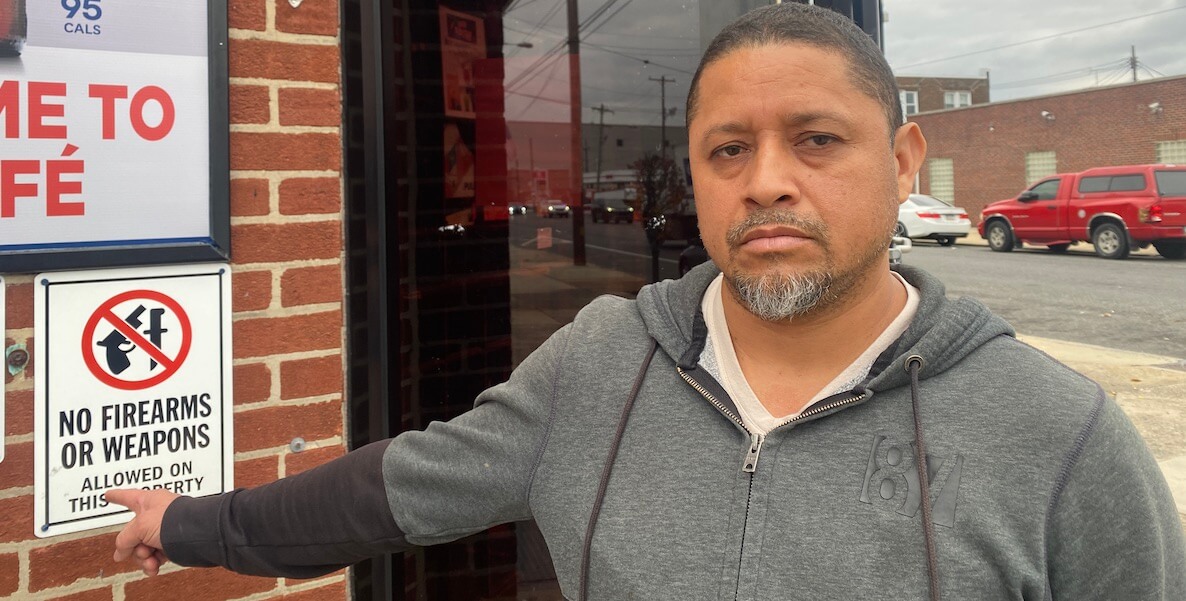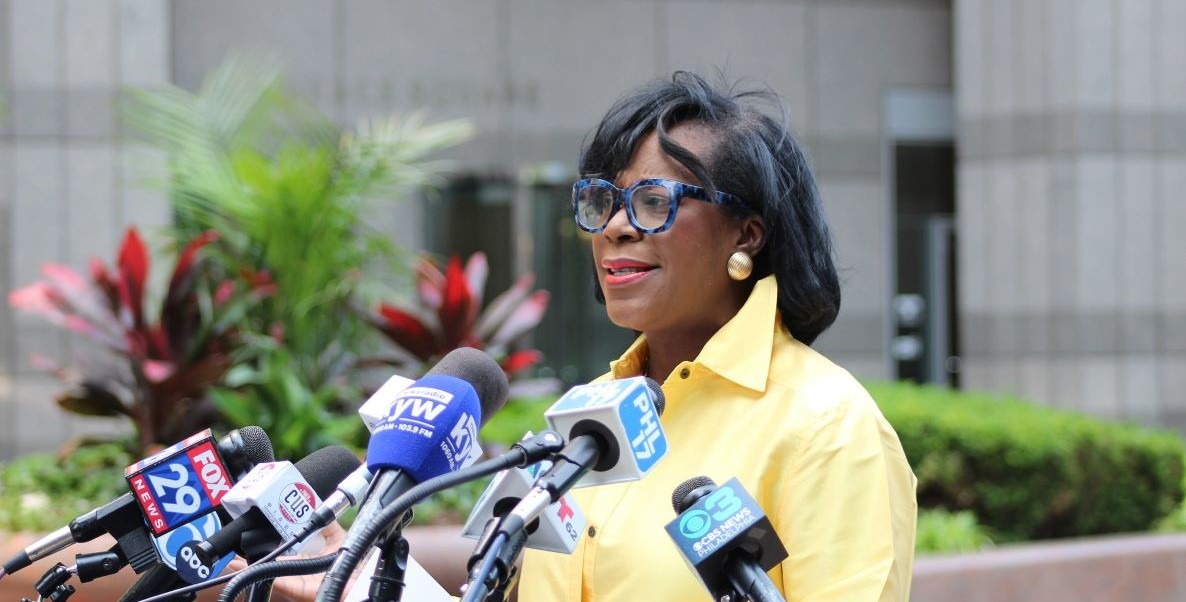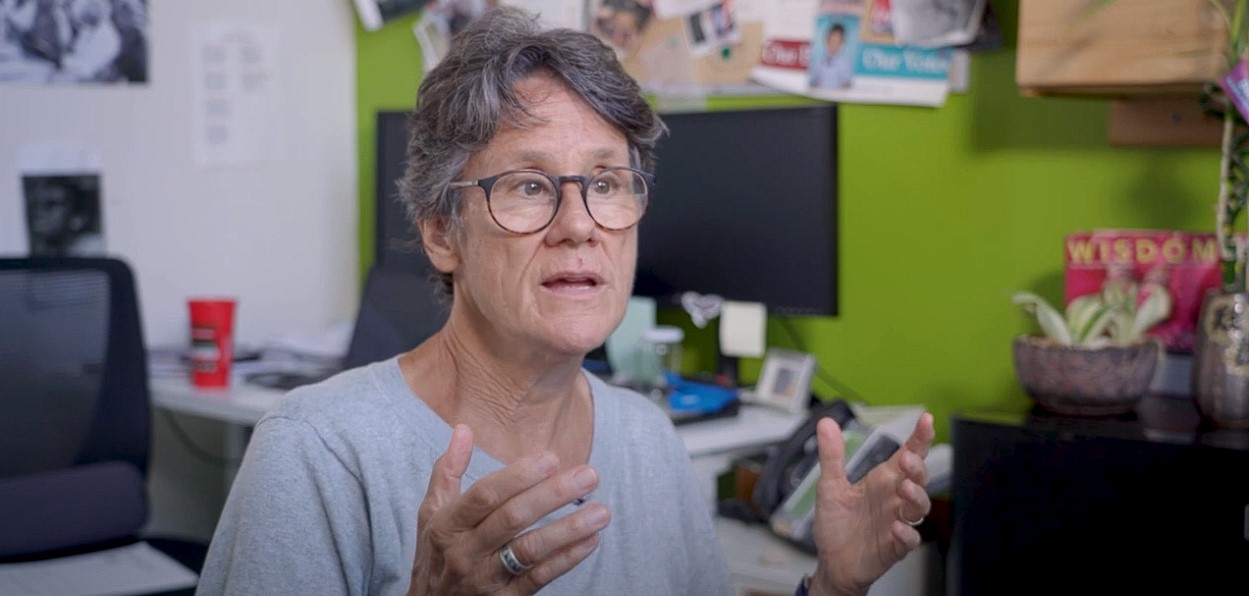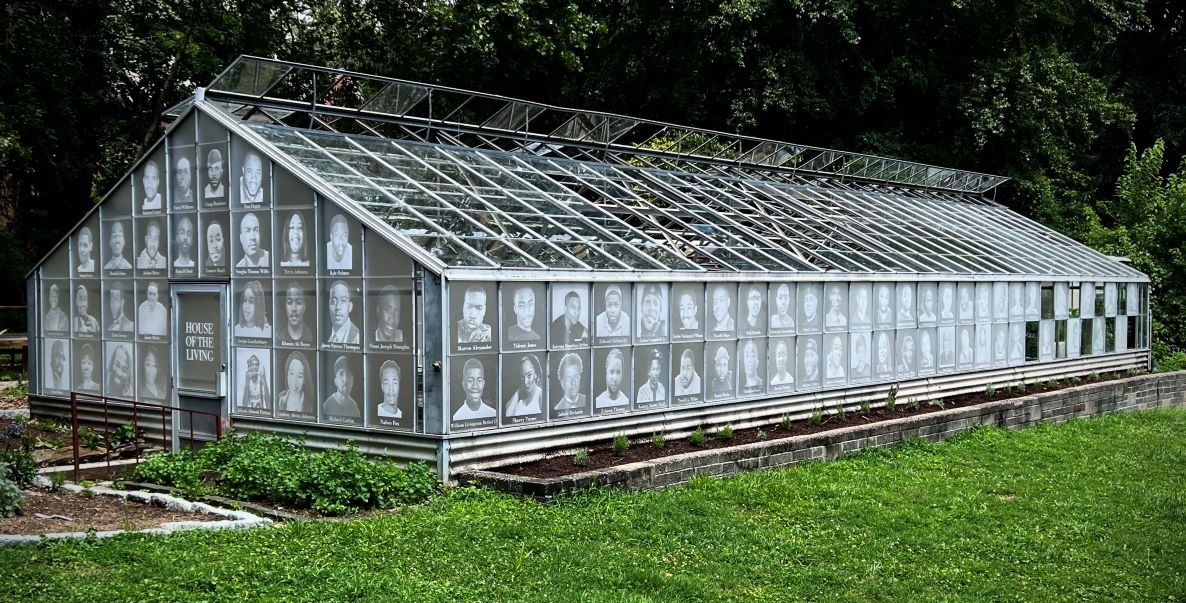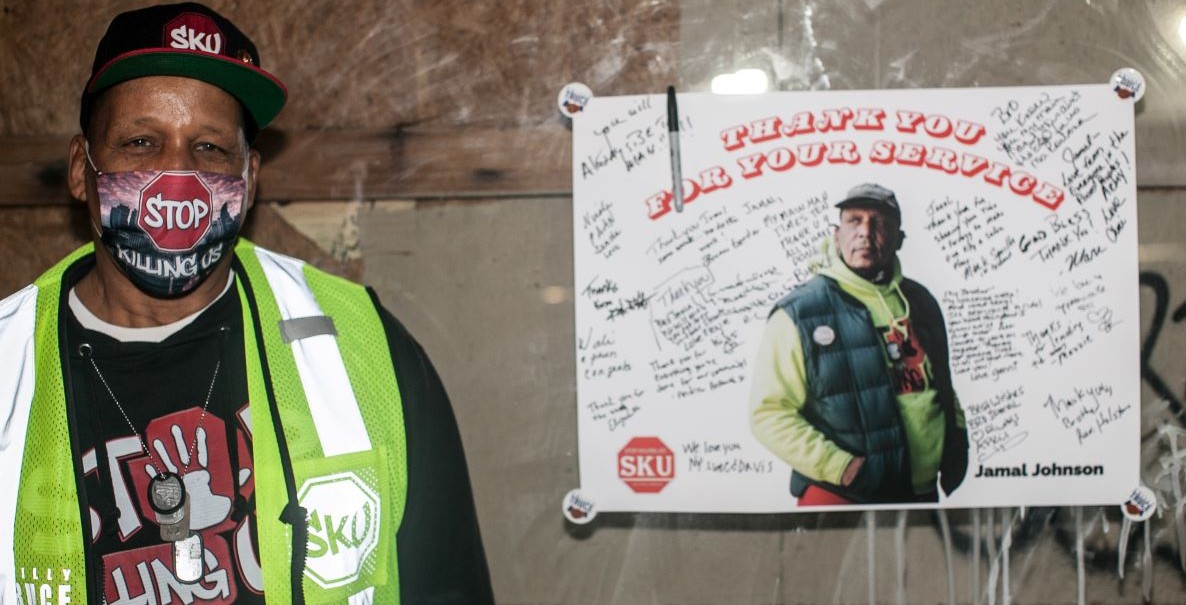From the triangle-shaped store she manages in North Philadelphia where 7th Street, Erie Avenue, and Rising Sun Avenue intersect, Margarita Collado has seen her share of gun violence, including when three men broke through the store’s basement door three months ago and engaged in a shootout with her husband.
“No one got shot,” recalled Collado, as a dozen children streamed through the front door of her Kendra Mini Market. “But the cops got one, and two got away.”
Despite that terrifying drama, Collado said she was pleased that the police arrived at the scene faster than they have for past emergencies, and that she’s been seeing more officers in the neighborhood this year.
“It’s safer. One, two years ago, I had a lot of people on the side of the store selling drugs. Right now, there is less,” Collado said. “There’s more police in the area. The police are working better.”
[Editor’s note: This story was also published by The Trace, a nonprofit newsroom covering gun violence in America. Sign up for its newsletters here.]
Pablo Solano, the manager of JJ’s Cafe on Erie Avenue near J Street, has “No Firearms Or Weapons Allowed On This Property” signs posted next to the entrance. He’s feeling safer because he hired more security guards about 10 months ago — and because he’s also noticed that police come quicker when he calls. “Before when we called them it took, like, an hour and a half to get here,” he said.
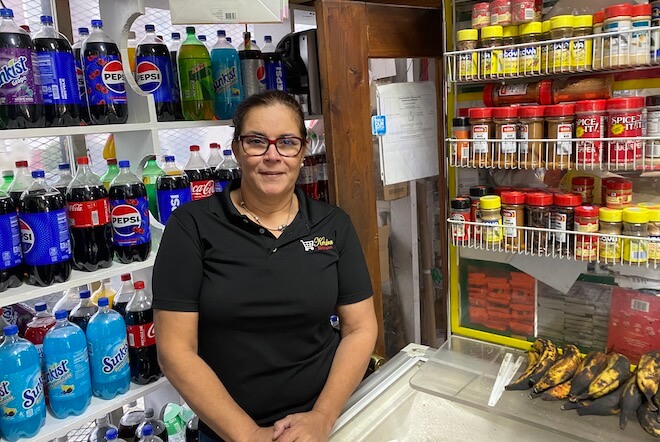
Collado and Solano live and work in one of Philadelphia’s highest-crime areas, in the heart of a cluster of four police districts that accounted for 43 percent of the city’s shootings last year.
The fact that both are seeing more police officers — and seeing them sooner when they call for help — is by design. In January, the city redeployed more than 100 officers to the four districts as part of a multi-pronged effort to quell a gun violence crisis that has claimed a historic number of victims. Throughout the year, the number of officers redeployed there has grown to almost 200, a department spokesman said.
While gun violence remains a jarring fact of life, taking 390 lives — more so far this year than in entire years before the pandemic — the number of shootings citywide is coming down. There were 480 homicides at the same time last year, according to the Police Department. In total, there were 514 slayings last year, the second most in city history, and 562 in 2021, the all-time record. The vast majority of Philadelphia’s homicides are the result of shootings.
City officials are attributing the decline to more than $500 million spent in recent years to create intervention initiatives, a revamped Operation Pinpoint system used to assign officers, and the redeployment of the additional officers to Kensington, Tioga-Nicetown, Strawberry Mansion, and parts of Germantown.
The decline in homicides in three of those districts is far outpacing the 19 percent decline citywide, according to data provided to The Trace by the Philadelphia Police Department. Killings through December 6 compared to the same time last year dropped 29 percent in the 39th District, 27 percent in the 25th District, 40 percent in the 24th District, and 12 percent in the 22nd District. Shootings in those districts were also down significantly overall — and especially in the 24th, where they declined by 47 percent.
“We certainly are not declaring victory, but there have been significant decreases in gun violence, which reflects the hard work and commitment of so many women and men in the Police Department and in the city,” interim Police Commissioner John Stanford Jr. said in a statement.
“Where do we go next?”
Residents in the four districts interviewed said that while seeing more officers in some areas is comforting, their streets are still dicey and they remain aware of their surroundings. “It’s the same old, same old,” Sully Irizarry insisted when told of the reduced number of shootings in her community. She was scrub-washing an old stove in front of a used appliance store on Kensington Avenue.
“Nothing’s ever going to get better no matter how many millions and billions they spend,” she said. “It’s the guns. Period. It’s just the guns.” — Margarita Collado
Still, Mayor Jim Kenney’s office touted the improvements in a gun violence prevention progress report released in late November. The report noted that, “while a reduction in the homicide rate is reflective of a national trend, the reduction in Philadelphia is almost twice the national rate. Through the first six months of 2023, homicides dropped by 9.4 percent in cities nationally.”
At the street level, the frequent sound of gunshots, screeching emergency vehicle sirens, and being in a constant state of mourning for those who’ve been shot leaves some unimpressed with the city’s progress.
“Nothing’s ever going to get better no matter how many millions and billions they spend. It’s the guns. Period. It’s just the guns.” —
The latest three victims in the 25th District were ambushed during a robbery of a deli on the corner of Hancock and Cambria Streets on December 6, police said. One man, the 34-year-old son of the owner, was shot in the head and killed. The store owner, who is 61, was shot in the chest and grazed in the head and is in critical condition, while a 21-year-old male customer was shot in the head and is also in critical condition.
Temple University criminal justice Professor Jason Gravel said the city would be wise to learn exactly which of its initiatives are responsible for reducing shootings so it can continue funding them and phasing out others, given that the projected expenditure level of $596 million since the spike in gun violence began is not sustainable.
“Is it the policing? Is it Group Violence Intervention?” he said. “Where do we go next?”
City Councilmember Jim Harrity, who lives in Kensington, said many areas within the four highest-crime districts — including where he lives — are still in need of a greater police presence to deal with problems associated with rampant homelessness, drug abuse, and drug dealing.
“The cops we have are not enough to keep up with everything that’s going on. This is a crime-crazy area. The drug dealers have basically taken over a whole neighborhood. It didn’t start overnight and it’s not going to be fixed overnight,” said Harrity, who is one of seven at-large members on the 17-member Council.
The reduction in shootings in the four districts and citywide is cause for “cautious optimism,” said Gravel. “We’re still at a really high level and people are still dying and getting injured. It’s great that [crime] is decreasing and the trend continues, but we have to make sure we don’t celebrate too fast.”
![]()
MORE ON GUN VIOLENCE IN PHILADELPHIA



